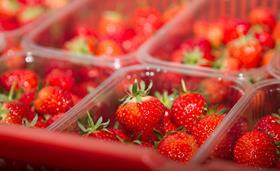
The government has issued advice to UK businesses thatmanufactureor import plastic packagingahead of the first British taxaimed at incentivising businesses to use recycled material in the production of plastic packaging.
With less than two months to go, HMRC reminded businesses to make sure they are prepared for the new legislation. Judith Kelly, deputy director of HMRC’s Environmental Taxes Policy Team, said: “Since the government announced the introduction of a new Plastic Packaging Tax back in 2018 to help tackle the pressing global issue of plastic pollution, we’ve been working closely with the industry on the design of the tax, which comes into force on 1 April 2022.
“This is the first tax of its kind aimed at incentivising businesses to use recycled plastic in the production of plastic packaging – those that use more than 30 per cent recycled plastic will not pay any tax.
“If you manufacture, import or purchase plastic packaging, including goods purchased in plastic packaging, you need to familiarise yourself with the tax and establish if you need to register and account for the tax.”
Details of the tax are set out in governmentguidancebut in summary, the tax will be charged at a rate ofrate of £200 per tonne on:
- UK-manufactured and imported plastic packaging, including packaging that is already filled with goods.
- Plastic packaging that does not contain at least 30 per cent recycled plastic.
- Each plastic packaging component, for example the 30 per cent recycled plastic threshold, will apply separately to the lid, label and bottle of a drinks bottle.
- Packaging made of more than one material, where plastic is the predominant material by weight.
There will be a small number of exemptions from the tax and businesses that manufacture or import less than10 tonnes of plastic packaging will not need toregister for the tax.
Businesses that exceed the 10-tonne threshold will need to register from 1 April even if all their packaging contains 30 per cent or more recycled plastic.
Kelly explained how this tax will help reduce plastic pollution:“Recycled plastic has a carbon footprint than can be up to four times lower than that of virgin plastic – introducing this taxwillprovide a clear economic incentive for businesses to use recycled plastic in the production of their packaging. This will also ensure wereduce the amount of plastic packaging that ends up in landfill.
“We’re working together with industry groups to help businesses understand their obligations and prepare for the tax. There are lots of things that you can start doing now, such as reviewing your records and taking any necessary steps to ensure that you can accurately verify the source and composition of your plastic packaging. You may need to work with other businesses in your supply chain to do this.
“You can also be checking the recycled plastic content of the plastic packaging you manufacture, import or use, and considering if you can switch to alternatives which are made with a higher percentage of recycled plastic. Unless you can prove otherwise, the approach will be to presume that the plastic in question contains less than 30 per cent recycled plastic and will be subject to the tax.
“If you are a business that purchases plastic packaging from a UK manufacturer or importer, you should carry out due diligence checks on your suppliers to ensure the tax has been properly accounted for on any packaging you purchase. If you export goods in plastic packaging, you may benefit from sharing information back up the supply chain.”
HMRC has alsocreated step-by-step guides covering whether the packaging a business manufactures or imports is within scope of the tax; andwhether businesses are liable to register and account for the tax on the packaging they manufacture and/or import. These can be requested fromindirecttaxdesign.team@hmrc.gov.uk.
The government is also running webinars in February to support businesses to make the final preparations ahead of April 2022.
This is an opportunity for anyone who missed out on HMRC’s previous webinars but will also cover additional information on how to weigh, calculate and evidence the recycled plastic content.
Clickhereto register for the ‘Introduction to Plastic Packaging Tax’ webinar, and for the ‘Plastic Packaging Tax: Administrative and Technical Aspects’ webinar you can registerhere.
Recordings of both webinars will be available afterwards. In the meantime, you can access the webinars from last year atGOV.UK.



